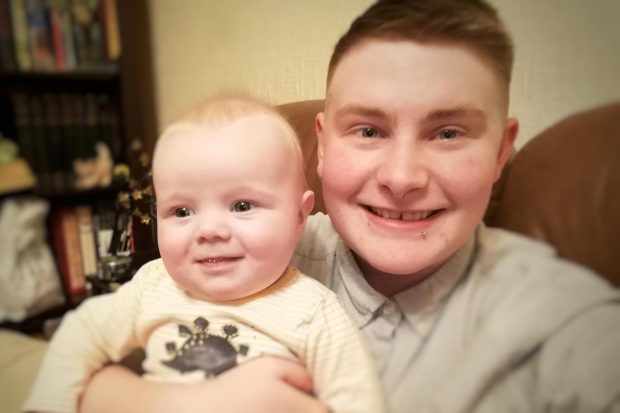
Public Health England (PHE) works hard to reduce inequalities in health regardless of age, gender identity, religion, ethnicity or sexual orientation. But we know that trans people can still face challenges when accessing health care.
Some issues specific to trans people include:
- gendered (designed with one gender in mind specifically) materials, such as leaflets aimed at women
- gendered spaces, such as maternity units
- IT systems which cannot always identify if a person’s gender is different to the sex they were assigned at birth
This can make trans people feel they:
- are not included
- do not have relevant information or services
- may be treated badly or differently when accessing services
The PHE Screening leaflet for people who are trans or non-binary helps make sure trans people are well informed and can access the screening that is most appropriate for them.
Being pregnant and male
A trans man can become pregnant if he:
- did not transition physically – he transitioned socially but did not have surgery
- transitioned physically but retained his ovaries and uterus when he had surgery
The high profile case of Freddy McConnell raised awareness of trans dads. Freddy starred in the documentary ‘Seahorse’ – named because male seahorses carry the babies of their species.

Becoming pregnant can be a difficult time for a trans man. This is especially true if he is currently in the process of transitioning.
Once pregnant, he must stop taking replacement hormones if he was taking them. He may see physical changes to parts of his body, such as his chest.
All these changes can be disheartening or distressing, and may feel like ‘undoing’ the transition process. His friends and family may find the situation confusing and think he has changed his mind about transitioning.
The last thing we want in this situation is for screening services to cause any additional unnecessary distress.
Ryan’s story
Ryan is a trans man who has just had his baby. We spoke to him about his experience of NHS antenatal and newborn screening.
Everyone I met during my pregnancy was good to me. Being trans has not been a problem at all when dealing with people. It was only computers that wouldn’t accept me!
I was marked as female on my hospital’s IT system as it would not allow a pregnant male. This did not bother me too much as I was thinking about the baby’s health. I think some people would feel uncomfortable in this situation, though.
I also had an issue with one of my tests. I had bloods taken and they were sent to the laboratory. Next, I was asked to come back in as my sample had been lost. I later learned that the sample had actually been rejected.
I did not mind having to do the test again but not everyone is as good with needles as me.
As a result of his blood sample being rejected, the hospital has changed its code of conduct to specify that:
- labs should be made aware in advance when they will be receiving a sample with a male name
- caring for a person who identifies as male when pregnant does not alter the offer or processes regarding antenatal and newborn screening tests
Improving processes
Colette Collier was Ryan’s midwife at Rochdale Infirmary. She looked after Ryan throughout his pregnancy and told us that:
This has been a learning curve for all of us, with some hiccups along the way! It’s been a great experience supporting Ryan through his pregnancy and I’m so glad that other screening services can learn from what we got right – and wrong.
In particular, I’d suggest that all maternity departments should review their own policies to make sure they’re inclusive of trans people at every step. You should not wait until the first trans person books for maternity care to check the system works.
PHE Screening blog
The PHE Screening blog provides up to date news from all NHS screening programmes. You can register to receive updates direct to your inbox, so there’s no need to keep checking for new blogs. If you have any questions about this blog article, or about population screening in England, please contact the PHE screening helpdesk.